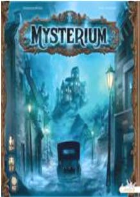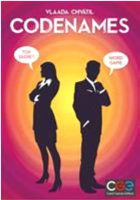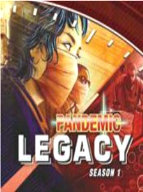-
Film has properties that set it apart from painting, sculpture, novels, and plays. It is also, in its most popular and powerful form, a story telling medium that shares many elements with the short story and the novel. And since film presents its stories in dramatic form, it has even more in common with the stage play: Both plays and movies act out or dramatize, show rather than tell, what happens.
Unlike the novel, short story, or play, however, film is not handy to study; it cannot be effectively frozen on the printed page. The novel and short story are relatively easy to study because they are written to be read. The stage play is slightly more difficult to study because it is written to be performed. But plays are printed, and because they rely heavily on the spoken word, imaginative readers can conjure up at least a pale imitation of the experience they might have been watching a performance on stage. This cannot be said of the screenplay, for a film depends greatly on visual and other nonvisual elements that are not easily expressed in writing. The screenplay requires so much “filling in” by our imagination that we cannot really approximate the experience of a film by reading a screenplay, and reading a screenplay is worthwhile only if we have already seen the film. Thus, most screenplays are published not to read but rather to be remembered.
Still, film should not be ignored because studying it requires extra effort. And the fact that we do not generally “read” films does not mean we should ignore the principles of literary or dramatic analysis when we see a film. Literature and films do share many elements and communicate many things in similar ways. Perceptive film analysis rests on the principles used in literary analysis, and if we apply what we have learned in the study of literature to our analysis of films, we will be far ahead of those who do not. Therefore, before we turn to the unique elements of film, we need to look into the elements that film shares with any good story.
Dividing film into its various elements for analysis is a somewhat artificial process, for the elements of any art form, never exist in isolation. It is impossible, for example, to isolate plot from character: Events influence people, and people influence events; the two are always closely interwoven in any fictional, dramatic, or cinematic work. Nevertheless, the analytical method uses such a fragmenting technique for ease and convenience. But it does so with the assumption that we can study these elements in isolation without losing sight of their interdependence or their relationship to the whole.
1.What is mainly discussed in the text?
A.The uniqueness of film.
B.The importance of film analysis.
C.How to identify the techniques a film uses.
D.The relationship between film analysis and literary analysis.
2.Why is it not handy to study film?
A.Because screenplay is not as well written as literary works.
B.Because a film cannot be effectively represented by a printed screenplay.
C.Because a film is too complicated.
D.Because publishers prefer to publish literary works.
3.From the third paragraph we learn that ________.
A.the means by which we analyze a literary work cannot be applied to the analysis of the film
B.a good film and a good story have many elements in common
C.we should not pay extra effort to study films
D.using the principles of literary analysis makes no difference in film analysis
4.Why can’t we divide film into various elements for analysis?
A.Because these elements are interwoven with each other and cannot be separated.
B.Because films cannot be written down and it is inconvenient to analyze them.
C.Because films elements are too complicated.
D.Because films need not to be analyzed in detail.
难度: 困难查看答案及解析
-
All aboard: try these out
Here are new card games popular in the Western geek circle that offer much brain work. Give them a try if you fancy testing your limits.
Mysterium

In this game, the players are to solve a murder mystery in order to put rest the soul of a wrongly-accused man who dies in prison.
Mysterium allows one player to be the ghost itself, who offers hints to other players in the way of “dream cards”. The dream cards will then lead players to the cards with details about the murder weapon, location and suspects. Figuring out the connections between these elements will help them find the murderer.
Playing the ghost can be fun, as Tony Mastrangeli, a game reviewer, puts it, “For me, some of the most fun comes from playing the ghost role. I like steering the ship and handing out cards.”
Codenames

Codenames starts players out with cards. Each card bears a word on the front and a secret identity on the reverse. Players are divided into two teams, red team and blue team. Each team has a leader, or “spymaster”, who owns a map of each hidden identity. It’s then their job to give out clues so the team members can find their own spies.
Spymasters can only indicate the word on the card following a strict format: a single word followed by a number. For example, if the cards bearing “cactus(仙人掌)” and “heat” both belong to the red team, the clue can be “desert, two”. The red team members will then start discussing the clues and try to find the two cards that relate to “desert”.
Pandemic: Legacy

In this game, you and your friends play a team of doctors and scientists, who can help to prevent four deadly diseases from wiping out humanity. This is a cooperative game, which means you and your teammates either live together or die together.
By drawing an instruction card, teammates will be able to move, treat diseases or build a research station. If they draw one of the five “epidemic” (流行病) cards, the city will suffer a disease outbreak. If handled wrong, outbreaks might lead to a chain reaction and cause things to crash down.
Pandemic: Legacy requires you to look at the bigger picture before making any decisions. Finding the balance between treating diseases and seeking more permanent cures is a constant challenge.
1.Playing the ghost in Mysterium offers you a lot of fun because ________.
A.you can bring the poor man back to life
B.you can solve the murder mystery by yourself
C.you can dominate the whole game
D.you can select your partners
2.In Codenames, what clue may the Spymaster give for the cards bearing “agency”, “climate” and “fountain”?
A.“architecture, 3” B.“tourism, 3”
C.“location, 3” D.“geology, 3”
3.Which of the following is NOT true about Pandemic: Legacy?
A.It’s a role-play game.
B.Its players need to beat one another.
C.It provides fun and mental challenge.
D.It calls for carefulness and comprehensive thinking to win the challenge.
难度: 中等查看答案及解析
-
In 1851, Auguste Comte, the French philosopher and father of sociology, coined the new word altruism as part of a drive to create a non-religious religion based on scientific principles. He defined it as “intentional action for the welfare of others that involves at least the possibility of either no benefit or a loss to the actor”. At that time, studies of animal behavior and phrenology(颅相学) led him to locate egotistical(自我本位的) instincts at the back of the brain, altruistic ones at the front.
Today, we have a far more sophisticated knowledge of the neurological(神经学的) and biochemical factors that underpin kind behavior. And this science forms the bases of two books aimed at general readers—but also at those who, despite the research, still doubt the existence of altruism.
However, the books may end up providing more information for those who are doubtful. Take The Altruistic Brain by neuroscientist Donald Pfaff. On solid scientific ground, he builds a five-step theory of how altruism occurs, which depends on an idea that is unconvincing and may achieve the opposite result. Pfaff argues that to act altruistically you should first visualize the receiver of your good will, then mentally transform their image into your own, “from angle to angle and curve to curve”. Does it really work?
At the core of evolutionary biologist David Sloan Wilson’s Does Altruism Exist? is another contentious(有争议的) idea: altruism has evolved as the result of group selection. But Wilson argues his corner masterfully, providing a clever reply to the belief that natural selection occurs only at the level of the selfish gene: “Selfishness beats altruism within groups. Altruistic groups beat selfish groups,” he says.
In other words, we cooperate when doing so gives our team the advantage. That doesn’t sound very selfless either.
Wilson acknowledges this, but argues that thoughts and feelings are less important than actions. According to evolutionary theory, pure altruists do exist, but it doesn’t matter why people choose to help others—their reasons may be difficult even for themselves to understand. What matters is that humans can coordinate their activities in just the right way to achieve common goals. Other animals do this too, but we are masters. “Teamwork is the signature adaptation of our species,” he says.
Pfaff goes further, insisting that our brain biology “urges us to be kind”. He believes this knowledge alone will inspire individuals to be more altruistic. His desire to create a better world is admirable and some of his ideas are interesting, but Wilson’s analysis is clearer.
While it is in our nature to be altruistic, Wilson says, we also have a healthy regard for self-interest and a resistance to being pushed around. Which one comes to the fore depends on the environment in which we find ourselves. Ethics, he says, cannot be taught at individual level, but are “a property of the whole system”.
1.Which of the following can be considered an altruistic behaviour according to Comte’s definition?
A.A person offers to donate his liver to another who needs one.
B.A clerk returns the umbrella to his colleague which he has kept for a long time.
C.A student volunteers to wok in the orphanage to collect data for his research.
D.A police officer spots a car parking in the no-parking area, finding a child in the trunk.
2.What does Donald Pfaff think people should do in order to behave altruistically?
A.Draw a picture of the person they are going to help.
B.Transform the receiver into a kind person.
C.Visualize what they are going to do in mind first.
D.Imagine they themselves are to be helped.
3.Which of the following statements is David Sloan most likely to agree with in his book?
A.Being kind is not something people are born with.
B.People in groups are less likely to be selfish.
C.People may well act selflessly because of where they are.
D.Most people know clearly why they are ready to help others.
4.What can be concluded from the passage?
A.Figuring out what makes us behave selflessly is a tricky business.
B.Unlike Donald Pfaff’s book, David Sloan’s book aims at professional readers.
C.Comte’s definition of altruism proves to be impractical in modern times.
D.Both Donald Pfaff and David Sloan lay emphasis on team work.
难度: 困难查看答案及解析
-
When one looks back upon the fifteen hundred years that are the life span of the English language, he should be able to notice a number of significant truths. The history of our language has always been a history of constant change—at times a slow, almost imperceptible change, at other times a violent collision between two languages. Our language has been a living growing organism, it has never been static. Another significant truth that emerges from such a study is that language at all times has been the possession not of one class or group but of many. At one extreme it has been the property of the common, ignorant folk, who have used it in the daily business of their living, much as they have used their animals or the kitchen pots and pans. At the other extreme it has been the treasure of those who have respected it as an instrument and a sign of civilization, and who have struggled by writing it down to give it some permanence, order, dignity, and if possible, a little beauty.
As we consider our changing language, we should note here two developments that are of special and immediate importance to us. One is that since the time of the Anglo-Saxons there has been an almost complete reversal of the different relationship of words in a sentence. Anglo-Saxon (old English) was a language of many inflections. Modern English has few inflections. We must now depend largely on word order and function words to convey the meanings that the older language did by means of changes in the forms of words. Function words, you should understand, are words such as prepositions, conjunctions, and a few others that are used primarily to show relationships among other words. A few inflections, however, have survived. And when some word inflections come into conflict with word order, there may be trouble for the users of the language, as we shall see later when we turn our attention to such matters as WHO or WHOM and ME or I. The second fact we must consider is that as language itself changes, our attitudes toward language forms change also. The eighteenth century, for example, produced from various sources a tendency to fix the language into patterns not always set in and grew, until at the present time there is a strong tendency to restudy and re-evaluate language practices in terms of the ways in which people speak and write.
1.In contrast to the earlier linguists, modern linguists tend to ________.
A.attempt to continue the standardization of the language
B.evaluate language practices in terms of current speech rather than standards or proper patterns
C.be more concerned about language than its analysis or history
D.be more aware of the rules of the language usage
2.Choose the appropriate meaning for the word “inflection” used in line 4 of paragraph 2.
A.Changes in the forms of words.
B.Changes in sentence structures.
C.Changes in spelling rules.
D.Words that have similar meanings.
3.Which of the following statements is not mentioned in the passage?
A.It is generally believed that the year 1500 can be set as the beginning of the modern English language.
B.Some other languages had great influence on the English language at some stages of its development.
C.The English language has been and still in a state of relatively constant change.
D.Many classes or groups have contributed to the development of the English language.
4.The author of these paragraphs is probably a(an) ________.
A.historian B.philosopher
C.anthropologist D.linguist
5.Which of the following can be best used as the title of the passage?
A.The history of the English language
B.Our changing attitude towards the English language
C.Our changing language
D.Some characteristics of modern English
难度: 困难查看答案及解析